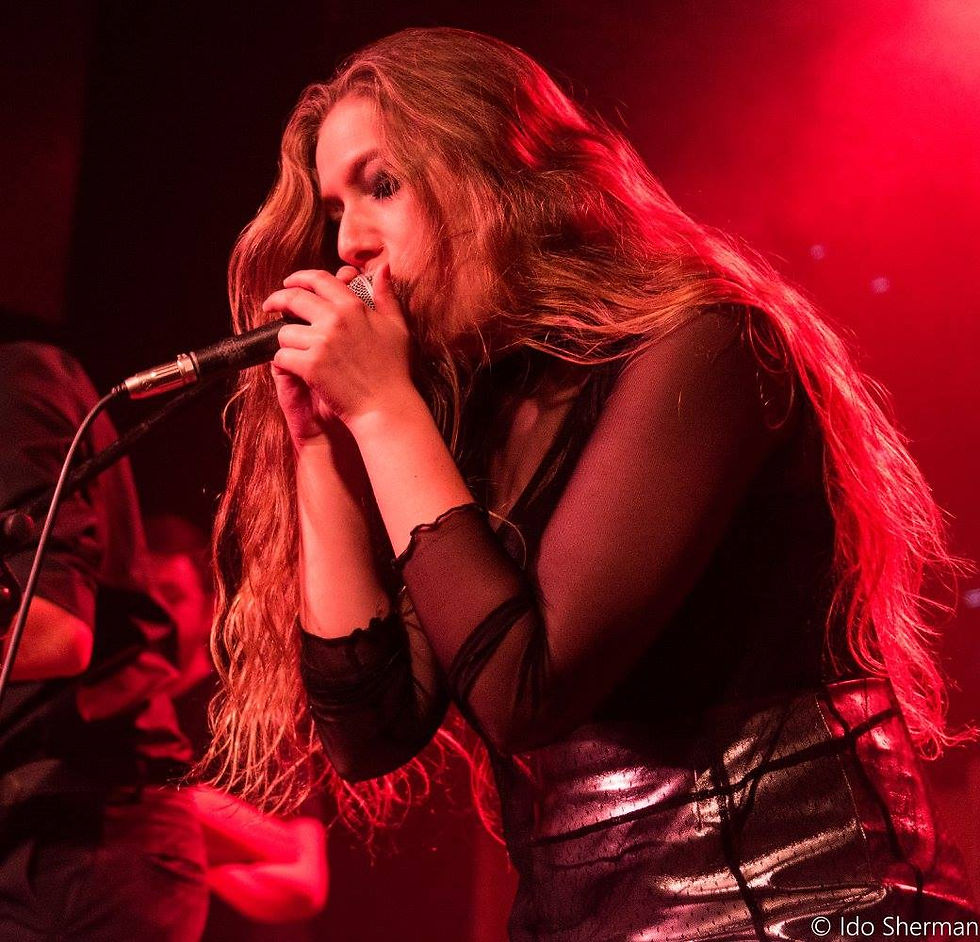"As a Director, You Really Have to Learn to Not Doubt Yourself"
- Top Shorts Team
- Sep 26, 2016
- 4 min read
Danna Wallace is an up-and-coming filmmaker whose work we value. We had the pleasure to chat with Danna about some of the challenges she may face, breaking into the industry as a young woman.
Growing up, who is your hero or role model? How have they affected your decision to become a filmmaker?
I’m not sure I have one specific hero or role model. Most of the stories I write are loosely based off of real people and their “stories” that are relevant to our time. Like, I’m currently writing a feature screenplay about an assault victim and the immoral, biased justice system. It’s a little heavy, I know, but I believe these stories are important and I want those people to know that they are being heard. Real people are the ones who inspire me to be the filmmaker that tells true stories. My only hope is to do right by them.

Was there a particular event in your life that made you want to become a film director?
I would have to say when I first started writing Jones and all the research I did to stay “politically correct” to Military protocols. You see, I come from a family where every generation was involved with the Military, whether they be enlisted or volunteering what little time they had to support the troops.
Which movie/s or director/s were you most influenced by, stylistically?
Stylistically, I’m inspired by a lot Clint Eastwood, the Russo Brothers (Anthony and Joe), and Sofia Coppola’s work. I feel like they always bring something new to the table and in this day and age, it’s nearly impossible to do so.

When working on films, do you usually use the same crew or do you change your team every time? How did you find your crew?
I tend to lean towards the same people for the "above the line crew". Those are the people that have continuously proved time and time again that they are trustworthy and hardworking, especially the producer, assistant director and editor. For the "below the line crew", sometimes it’s the same people, but there are times when people’s schedule didn’t coincide with the filming schedule, so I’ll normally find someone who’s fun and can get the job done to take their spot.
What are your expectations from your film crew?
I expect professional attitudes. I think it’s important, especially when you’re on set, to always be respectful not just of others, but of the location as well. I always want to leave a good impression behind for the people who were kind enough to let us use their house or office to film.

For decades, the film industry has been dominated by men filmmakers, but recently, Hollywood has started to change directions towards inclusion of women in every aspect of filmmaking. Being an aspiring, promising female director, what are your thoughts about that matter? What do you think should be done in order to create more equality? Do you personally try to make an effort to hire more females in your crew? Or do you disregard genders when hiring cast & crew?
I think women are proving their capability and independence can be just as strong a man’s, and I believe these are some of the needed steps everyone within the business needed to “see” in order to create more equality. I personally feel like we are truly a force to be reckoned with and I’m excited to see all these remarkable changes happen throughout my life!
As far as hiring crew goes, I’m not sure I intentionally go out of my way to hire strictly females. I think I end up with more women than men because they’ve proven to me and others they tend to be more reliable and eager to work; maybe it’s more of a coincidence.

Recently, you have a directed the wonderful, full of emotions short film Jones. Congratulations on this achievement! Why did you choose to tell the story of Jones?
First of all, thank you! I’m extremely proud with everyone and the end result of the film! I truly couldn’t have asked for a better cast and crew. I chose to tell this story though because of all our veterans and the 22 of them (per day) that end up taking their own lives due to the depression and anxiety of PTSD. I couldn’t imagine myself living with such a scar and I imagine it’s horrifying to be deployed, only to come home later and still be suffering. No one should have to live through that, especially the people fighting for our country.
What were some of the most important things you learned about film directing, while working on Jones?
Oh, god. A lot, I really learned a lot throughout this entire experience. However, I think the single most important thing I learned was to definitely have faith in people. This ranges from cast to crew to all the contributors of the film. I mean, it’s not that I was doubting them, I think it was more of a matter of we had all these time crunches and I was stressing out more than I should have. As a director, you really have to learn to not doubt yourself.

What is next for you? Where do you see yourself in 10 years?
Graduation is the next big step for me. After that, I hope to get some type of internship with Disney, Universal, or Warner Bros. I’ve even started looking into the DGA training program for Assistant Directors. I’m hoping one of these can open up some doors for me and I’m excited to see where it all takes me.
Is there anything you'd like to add?
Just thank you for this opportunity!



